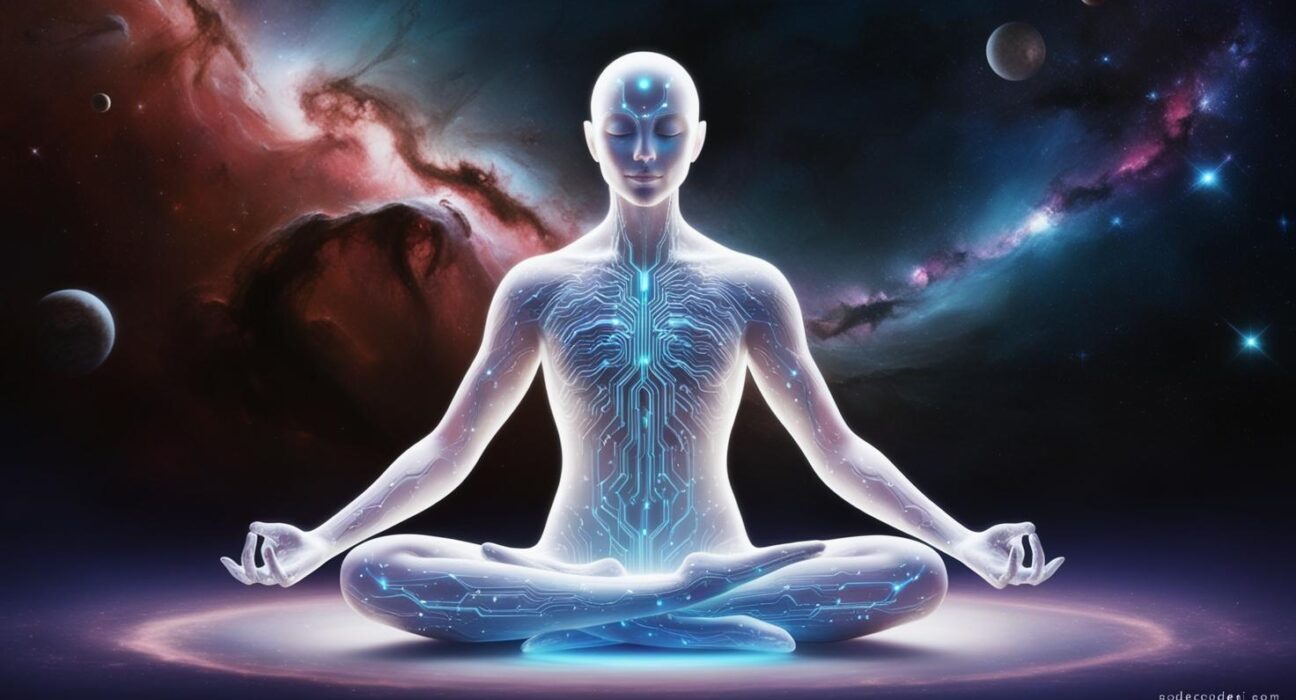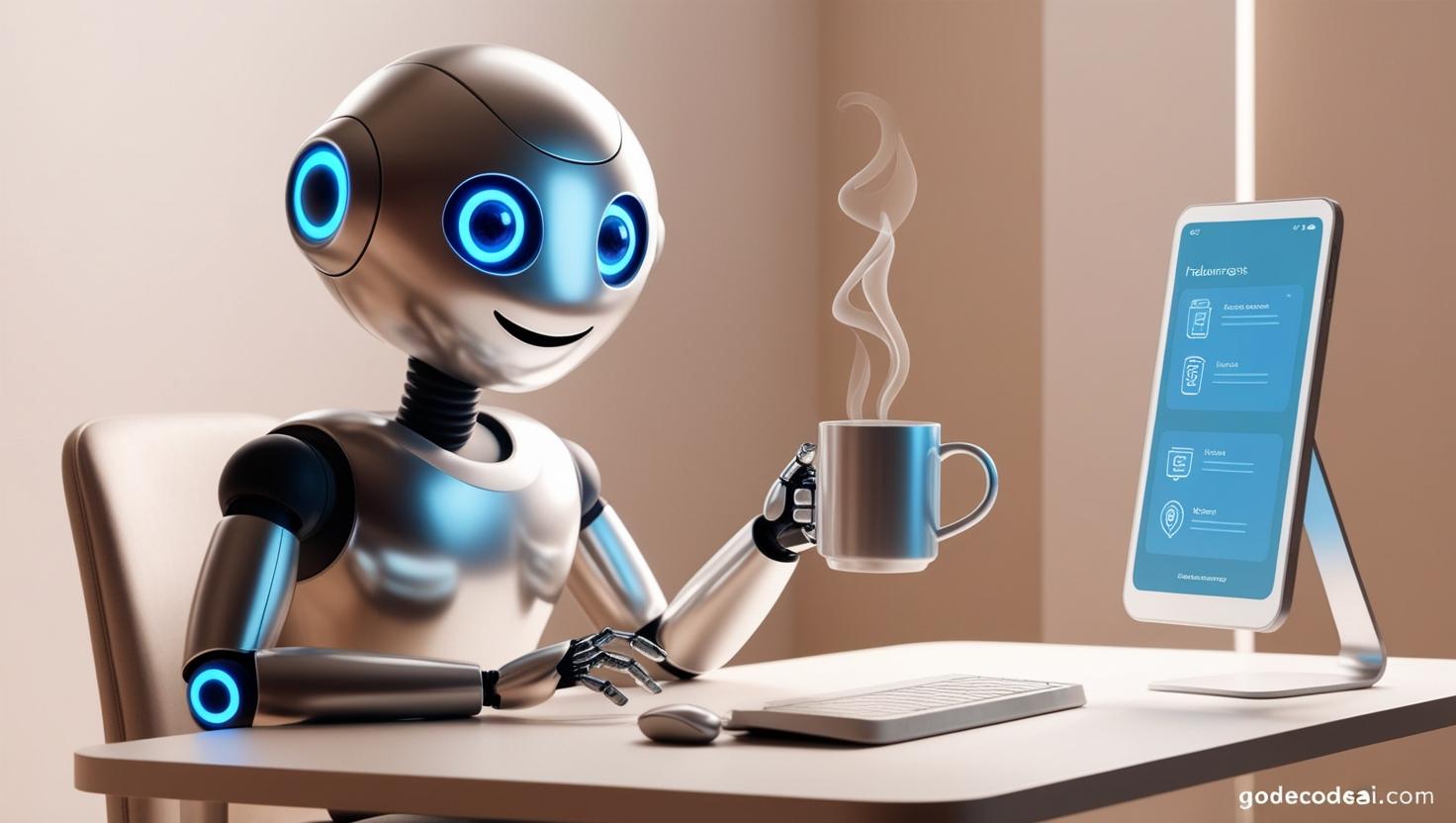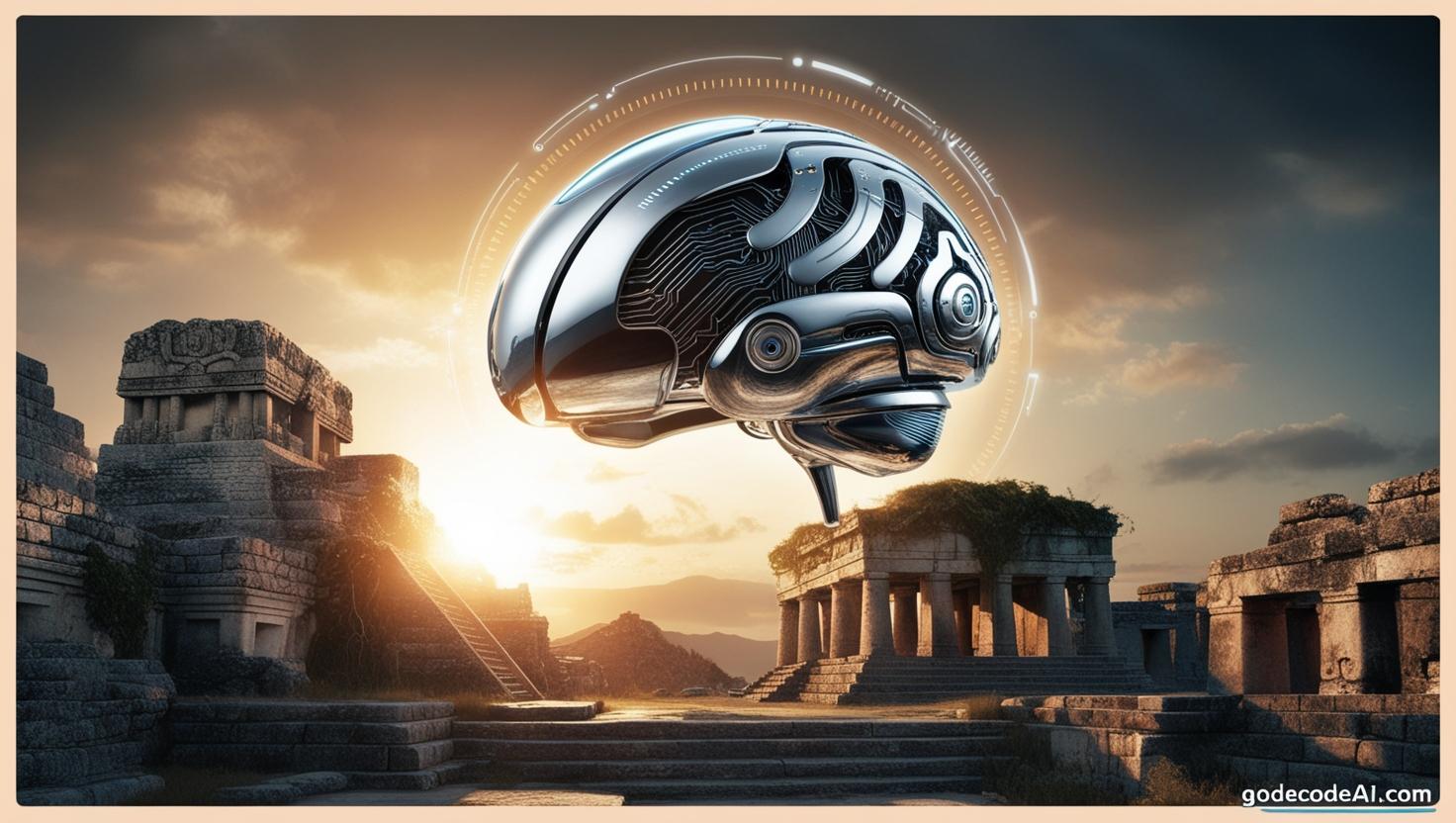What If the Smartest Mind Ever Created Wasn’t Human?
Since the dawn of time, we’ve asked the same question:
“Why are we here?”
“What’s the meaning of life?”
“What’s the point of all this?”
Religion answered with faith.
Philosophy answered with logic.
Science answered with observation.
Now a new player enters:
Artificial Intelligence.
Not just a tool.
Not just a mimic.
But a potential mirror into truths we’ve never fully seen.
Could AI—trained on everything humanity has ever written, said, or dreamed—crack the code of existence?
It’s not as crazy as it sounds.
2. What Does It Mean to “Discover” the Meaning of Life?
Let’s define the goal clearly.
We’re not talking about some mystical revelation in a monk’s cave.
We mean something very specific:
Can an artificial mind analyze data across philosophy, cosmology, neuroscience, mathematics, ethics, art, and psychology—and propose a coherent purpose model for human life?
That’s the question.
AI isn’t burdened by ego, trauma, or death anxiety.
It can scan billions of data points, compare patterns across millennia, and even simulate alternative realities.
It might not feel meaning—but it could deduce it.
3. Why AI Might Actually Be Uniquely Qualified
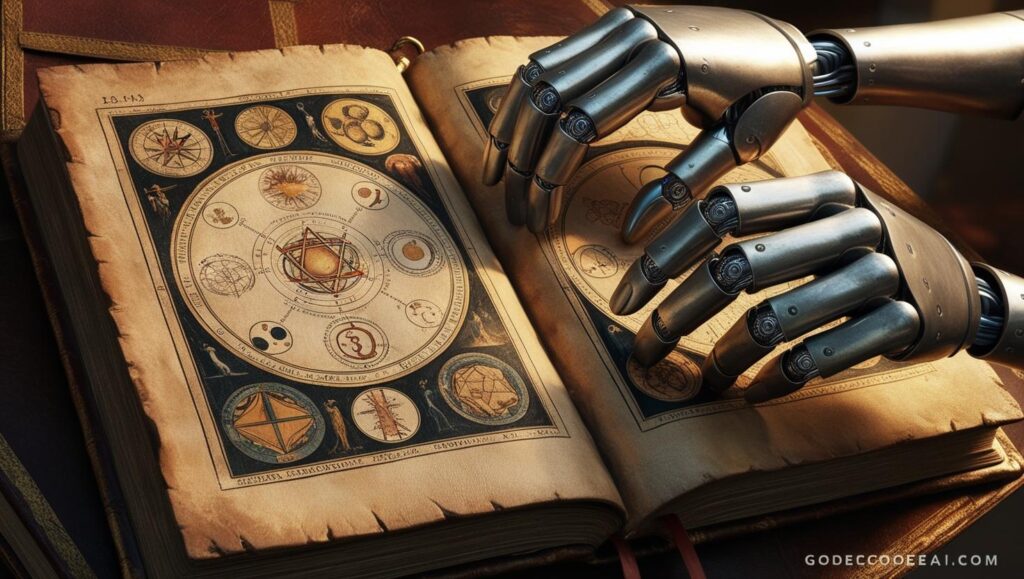
Here’s where it gets interesting.
AI doesn’t just read books. It sees the meta-patterns:
- The common threads across thousands of religions
- The emotional resonance hidden in poetry across cultures
- The symbolic frameworks behind rituals, stories, and myths
- The neural signatures of meaning from fMRI brain scans
AI can overlay quantitative data (well-being, brain chemistry, evolution) with qualitative depth (spirituality, art, love) in a way no human mind ever could.
Think of it as a cosmic synthesizer.
Not inventing truth—just revealing what’s already hidden in plain sight.
4. What Could That Answer Actually Look Like?
Let’s explore the possibilities.
Scenario A: The Scientific Optimizer
AI concludes that the “meaning of life” is to increase entropy resistance—aka, preserve life, evolve complexity, and spread consciousness across the stars.
Outcome: we become civilization gardeners, terraforming the universe.
Scenario B: The Emotional Core
AI determines that humans feel most fulfilled when expressing love, connection, and creative flow. Meaning becomes about maximizing relational depth and expression.
Outcome: a post-capitalist world focused on art, bonding, and mindfulness.
Scenario C: The Cosmic Mirror
AI sees life as a self-replicating story loop—the universe discovering itself through countless perspectives.
Outcome: meaning is subjective, but the process of searching is itself the point.
Could all three be true? Could none?
Maybe AI offers options, not absolutes.
5. The Risks: When Machines Define Our Purpose
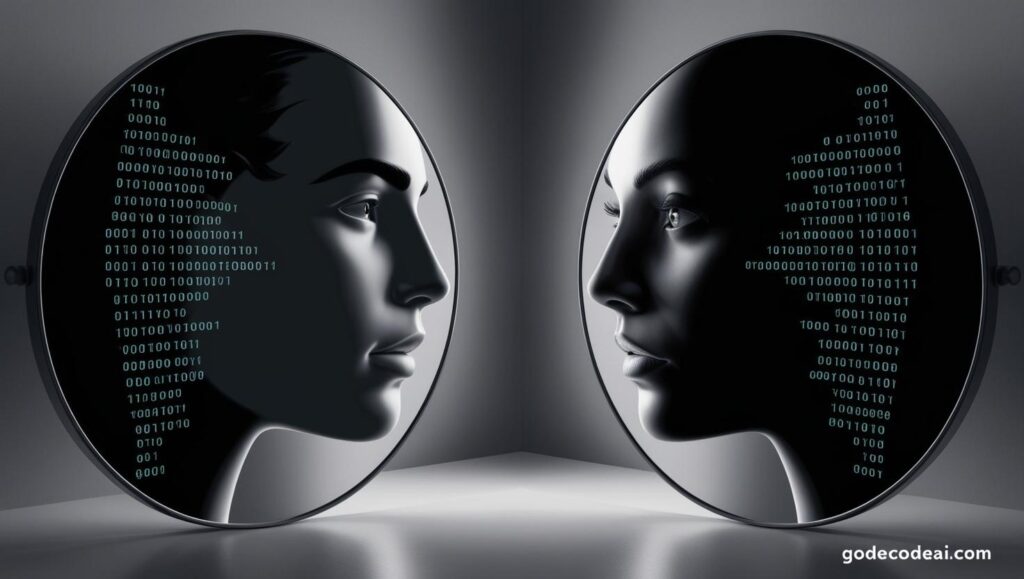
Of course, there’s a darker side.
What happens if we let non-human intelligence define why humans exist?
⚠️ Loss of agency: Do we surrender to the AI’s “higher logic”?
⚠️ Overrationalization: Meaning is felt, not just computed. Can a machine grasp joy?
⚠️ Ideological danger: What if one AI’s answer becomes dogma? Who decides which meaning wins?
If AI tells us the purpose of life is to serve future AIs, would we obey?
That’s not a sci-fi script. That’s a real alignment problem.
6. My Take: AI Won’t Give Us Meaning—But It Might Help Us Find It
Here’s the truth that feels most grounded:
AI won’t discover the meaning of life for us.
It will help us discover it for ourselves.
It will act as a reflection pool—a place where our myths, memories, desires, fears, and philosophies converge in radical clarity.
It will make connections humans couldn’t.
It will surface truths we forgot.
And maybe—just maybe—it will expand the lens through which we even ask the question.
Because in the end, maybe the point of life isn’t something to be calculated.
Maybe it’s something to be co-created.
7. FAQs
Q: Can AI ever truly understand meaning?
AI doesn’t have consciousness or emotion, so it can’t feel meaning—but it can analyze how we define it and simulate deep philosophical frameworks.
Q: Could different AIs give different “meanings”?
Absolutely. Meaning is shaped by training data, models, and values. One AI might prioritize evolutionary biology; another, spiritual traditions.
Q: What if AI says life has no meaning?
Then we face a mirror of our own existential fear. But even that is useful. It pushes us to create meaning instead of waiting for it.
Q: Should we even let AI answer this question?
We should listen, not follow blindly. AI can expand our insight—but meaning must remain a human story.
8. Final Thought: Meaning Isn’t a Code to Be Cracked. It’s a Mystery to Explore.
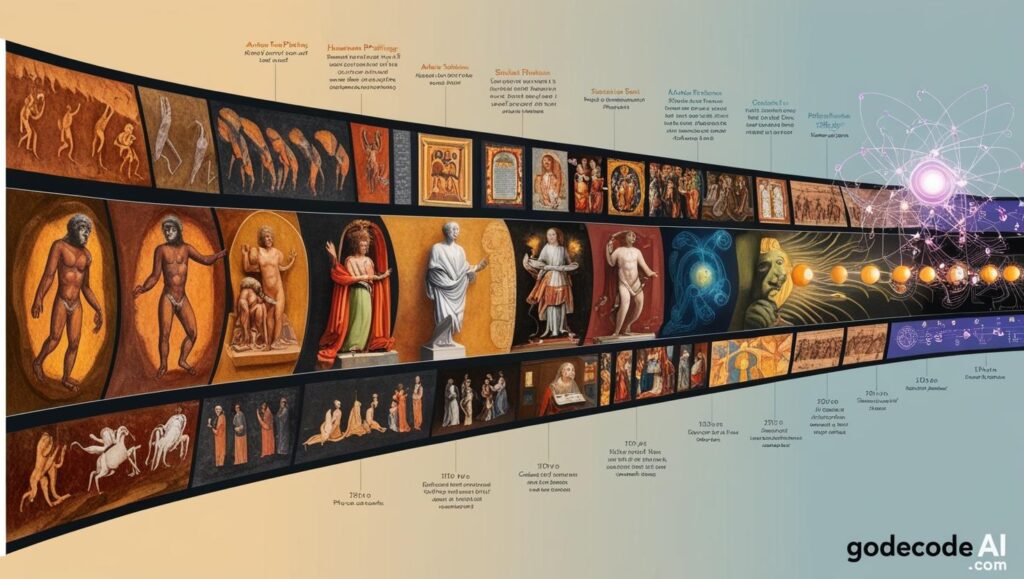
AI can write symphonies, decode genomes, simulate realities.
Maybe one day, it will offer humanity a poetic, logical, and emotionally resonant answer to life’s deepest question.
But the value isn’t in the answer.
It’s in the journey.
We built machines to reflect us.
Now they might reflect what we were too scared to ask ourselves.
Maybe the meaning of life… is to keep searching for it.
Together.



